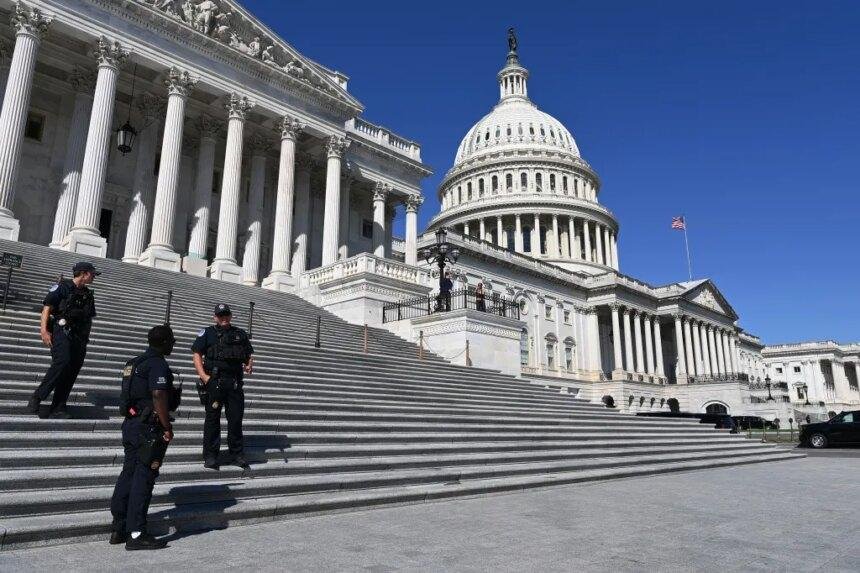Senate Rejects Fifth Attempt to End Government Shutdown Amidst Healthcare Negotiations
In a significant political standoff, a majority of Democratic senators on Monday turned down a fifth attempt by Republicans to pass a stopgap funding bill aimed at ending the ongoing government shutdown. This decision came just hours after former President Donald Trump hinted at a potential healthcare deal with Democrats, adding another layer of complexity to the already tense negotiations.
The Vote Breakdown
The Senate voted 52-42 against the continuing resolution, which was backed by Trump and would have maintained government funding at pre-shutdown levels until November 21. The measure fell short of the 60 votes required to overcome a legislative filibuster, highlighting the deep partisan divide that has characterized recent congressional sessions. Only three Democrats-Catherine Cortez Masto of Nevada, John Fetterman of Pennsylvania, and Angus King of Maine, an Independent who caucuses with Democrats-supported the bill. On the Republican side, Senator Rand Paul of Kentucky was the sole dissenting voice against the proposal.
Implications of the Shutdown
As the government remains unfunded for a seventh consecutive day, the implications are far-reaching. Federal services are disrupted, and critical programs, including food aid, are at risk. The shutdown has reignited discussions about the responsibilities of both parties in the current impasse. Senate Majority Leader Chuck Schumer (D-NY) and other Democrats have criticized the “clean” continuing resolution for not addressing the expiration of Affordable Care Act (ACA) subsidies, which are set to lapse at the end of the year.
Trump’s Healthcare Negotiations
In a surprising twist, Trump expressed a willingness to negotiate healthcare reforms, stating, “If we made the right deal, I’d make a deal. Sure.” He criticized the ACA, claiming that billions are wasted on subsidies and suggesting that better healthcare solutions could be achieved through bipartisan cooperation. However, Schumer quickly refuted Trump’s claims, asserting that Democrats have long sought Republican engagement on healthcare issues. “For months, Democrats have been demanding Trump and Republicans come to the table,” Schumer stated, emphasizing the need for collaborative efforts to lower healthcare costs for Americans.
The Political Landscape
Trump’s comments come at a time when public sentiment appears to favor a resolution to the shutdown. A recent Harvard CAPS/Harris poll indicated that 65% of Americans, including nearly 40% of Democrats, believe that Democrats should accept a continuing resolution at current spending levels, even without extending ACA subsidies. This statistic underscores the pressure on Democratic leaders to find a compromise that could alleviate the shutdown’s impact on the public.
Senate Minority Leader John Thune (R-SD) seized on this sentiment, declaring, “Democrats own this,” and attributing the shutdown to their refusal to accept a straightforward funding extension. This rhetoric reflects a broader strategy among Republicans to shift blame onto Democrats, framing the shutdown as a failure of their leadership.
Historical Context
The current government shutdown is not an isolated incident; it is part of a long history of budgetary conflicts in U.S. politics. The last significant shutdown occurred in late 2018 and early 2019, lasting 35 days and primarily centered around funding for a border wall. Such standoffs often reveal deeper ideological divides between the parties, particularly regarding fiscal responsibility and social welfare programs.
Looking Ahead
As the shutdown continues, both parties face mounting pressure to reach a resolution. The stakes are high, not only for federal employees and services but also for the political futures of those involved. With the 2024 elections on the horizon, how each party navigates this crisis could significantly influence voter sentiment.
Trump’s call for Democrats to reopen the government “tonight” adds urgency to the discussions, but the path forward remains fraught with challenges. Democrats are also pushing for the reversal of changes to Medicaid payment and eligibility rules introduced in Trump’s previous legislation, complicating negotiations further.
Conclusion
The rejection of the latest funding bill underscores the deepening divide in Congress and the complexities of bipartisan negotiations. As the government shutdown drags on, the implications for federal services and public sentiment will likely shape the political landscape in the coming months. Both parties must grapple with the consequences of their actions, as the American public watches closely, eager for a resolution that addresses both immediate needs and long-term healthcare reforms.











